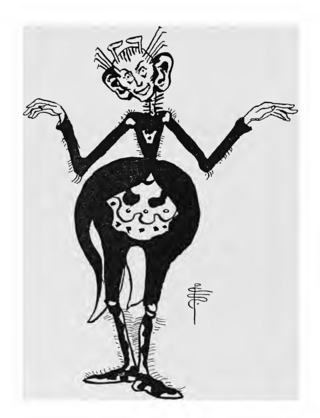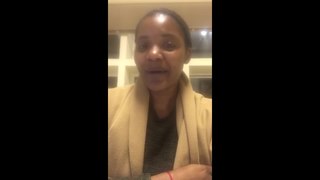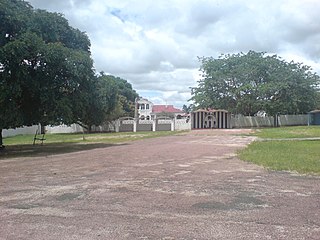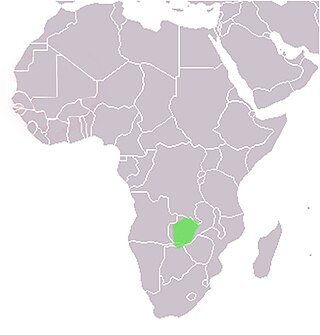Related Research Articles

Anansi or Ananse is an Akan folktale character associated with stories, wisdom, knowledge, and trickery, most commonly depicted as a spider, in Akan folklore. Taking the role of a trickster, he is also one of the most important characters of West African, African American and West Indian folklore. Originating in Ghana, these spider tales were transmitted to the Caribbean by way of the transatlantic slave trade.
SothoSesotho, also known as Southern Sotho or Sesotho sa Borwa is a Southern Bantu language of the Sotho–Tswana ("S.30") group, spoken in Lesotho, and South Africa where it is an official language.

Lozi, also known as Silozi and Rozi, is a Bantu language of the Niger–Congo language family within the Sotho–Tswana branch of Zone S (S.30), that is spoken by the Lozi people, primarily in southwestern Zambia and in surrounding countries. The language is most closely related to Northern Sotho, Tswana (Setswana), Kgalagari (SheKgalagari) and Sotho. Lozi, sometimes written as Rotse, and its dialects are spoken and understood by approximately six per cent of the population of Zambia. Silozi is the endonym as defined by the United Nations. Lozi is the exonym.

The Lozi people, also known as Balozi, are a Bantu-speaking ethnic group native to Southern Africa. They have significant populations in Angola, Botswana, Namibia, Zambia, and Zimbabwe. The Lozi language, Silozi, is used as the formal language in official, educational, and media contexts. The Lozi people number approximately 1,562,000.

Barotseland is a region between Namibia, Angola, Botswana, Zimbabwe including half of north-western province, southern province, and parts of Lusaka, Central, and Copperbelt provinces of Zambia and the whole of Democratic Republic of Congo's Katanga Province. It is the homeland of the Lozi people or Barotse, or Malozi, who are a unified group of over 46 individual formerly diverse tribes related through kinship, whose original branch are the Luyi (Maluyi), and also assimilated Southern Sotho tribe of South Africa known as the Makololo.

Mongu is the capital of Western Province in Zambia and was the capital of the formerly-named province and historic state of Barotseland. Its population is 179,585, and it is also the headquarters of Mongu District. Mongu is the home of the Litunga, King of the Lozi people.

Asase Ya/Afua is the Akan goddess of fertility, love, procreation, peace, truth and the dry and lush earth in Ghana and Ivory Coast. She is also Mother of the Dead known as Mother Earth or Aberewaa.

Nyambe is the Supreme God, Sky Father, and God of the Sun across numerous traditional Bantu religions.

Akan religion comprises the traditional beliefs and religious practices of the Akan people of Ghana and eastern Ivory Coast. Akan religion is referred to as Akom. Although most Akan people have identified as Christians since the early 20th century, Akan religion remains practiced by some and is often syncretized with Christianity. The Akan have many subgroups, so the religion varies greatly by region and subgroup. Similar to other traditional religions of West and Central Africa such as West African Vodun, Yoruba religion, or Odinani, Akan cosmology consists of a senior god who generally does not interact with humans and many gods who assist humans.
Mulena Yomuhulu Mbumu wa LitungaNgombala was a Great Chief of the Lozi people in Zambia, in Africa.
Mulena Yomuhulu Mbumu wa LitungaNgalama was a High Chief of Lozi people in Barotseland Zambia, Africa.
Mulena Yomuhulu Mbumu wa LitungaInyambo was a Great African King of the Lozi people in Barotseland, Zambia, one of the first kings of the Lozi, and likely a mythical ruler or demigod.
Mulena Yomuhulu Mbumu wa LitungaMwanasolundwi Muyunda Mumbo wa Mulonga was a mythical ruler, High chief of the Lozi people in Zambia, Africa.
Mulena Yomuhulu Mbumu wa LitungaYeta II Nalute was an African High Chief, king of the Lozi people and Barotseland in Zambia.

Mulena Yomuhulu Mbumu wa LitungaYubya I was a High Chief or King of Barotseland in Zambia, Africa, one of the sacred Lozi chiefs.

Mulena Yomuhulu Mbumu wa LitungaSelumelume Muimui was a Chief of Barotseland in Africa.
Akufuna Tatila was a Litunga, Chief of the Lozi people of Barotseland in Africa, but he ruled for a very short time and his power was weak. His full title was Mulena Yomuhulu Mbumu wa Litunga.
Yeta III CBE was a king of Barotseland, of the Lozi people in what is now Western Zambia.
The 2003 Taraba State gubernatorial election occurred on April 19, 2003. PDP candidate Jolly Nyame won the election, defeating ANPP Abubakar Saad and other 6 candidates.
References
- ↑ Lozi by Ernest Douglas Brown